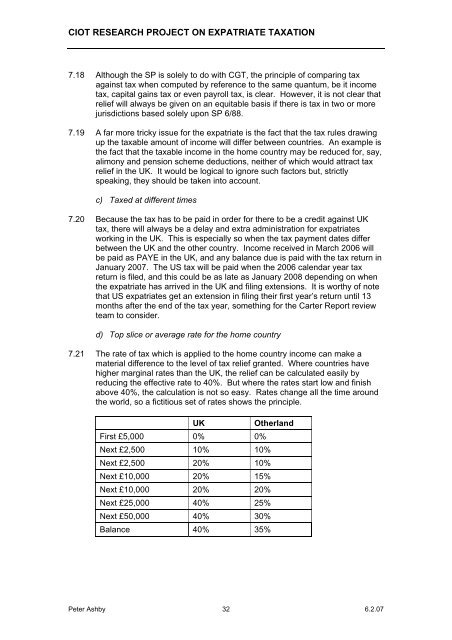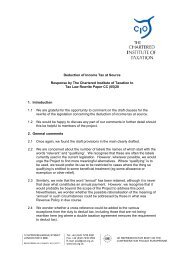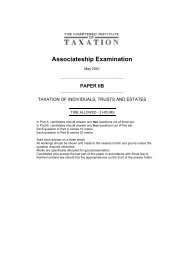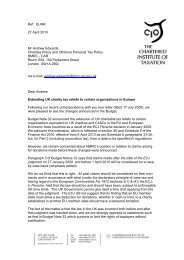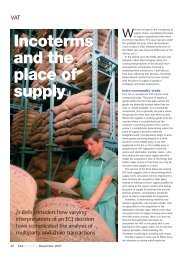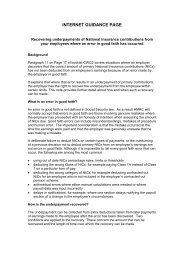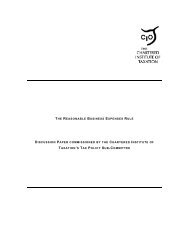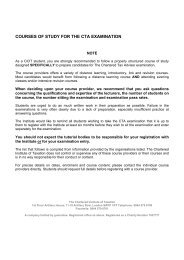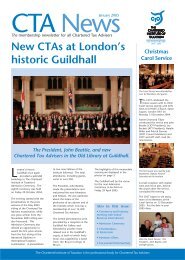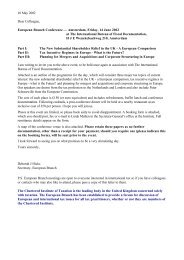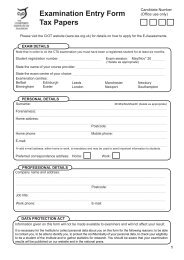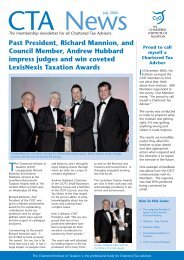Expatriate taxation - CIOT - The Chartered Institute of Taxation
Expatriate taxation - CIOT - The Chartered Institute of Taxation
Expatriate taxation - CIOT - The Chartered Institute of Taxation
You also want an ePaper? Increase the reach of your titles
YUMPU automatically turns print PDFs into web optimized ePapers that Google loves.
<strong>CIOT</strong> RESEARCH PROJECT ON EXPATRIATE TAXATION<br />
7.18 Although the SP is solely to do with CGT, the principle <strong>of</strong> comparing tax<br />
against tax when computed by reference to the same quantum, be it income<br />
tax, capital gains tax or even payroll tax, is clear. However, it is not clear that<br />
relief will always be given on an equitable basis if there is tax in two or more<br />
jurisdictions based solely upon SP 6/88.<br />
7.19 A far more tricky issue for the expatriate is the fact that the tax rules drawing<br />
up the taxable amount <strong>of</strong> income will differ between countries. An example is<br />
the fact that the taxable income in the home country may be reduced for, say,<br />
alimony and pension scheme deductions, neither <strong>of</strong> which would attract tax<br />
relief in the UK. It would be logical to ignore such factors but, strictly<br />
speaking, they should be taken into account.<br />
c) Taxed at different times<br />
7.20 Because the tax has to be paid in order for there to be a credit against UK<br />
tax, there will always be a delay and extra administration for expatriates<br />
working in the UK. This is especially so when the tax payment dates differ<br />
between the UK and the other country. Income received in March 2006 will<br />
be paid as PAYE in the UK, and any balance due is paid with the tax return in<br />
January 2007. <strong>The</strong> US tax will be paid when the 2006 calendar year tax<br />
return is filed, and this could be as late as January 2008 depending on when<br />
the expatriate has arrived in the UK and filing extensions. It is worthy <strong>of</strong> note<br />
that US expatriates get an extension in filing their first year’s return until 13<br />
months after the end <strong>of</strong> the tax year, something for the Carter Report review<br />
team to consider.<br />
d) Top slice or average rate for the home country<br />
7.21 <strong>The</strong> rate <strong>of</strong> tax which is applied to the home country income can make a<br />
material difference to the level <strong>of</strong> tax relief granted. Where countries have<br />
higher marginal rates than the UK, the relief can be calculated easily by<br />
reducing the effective rate to 40%. But where the rates start low and finish<br />
above 40%, the calculation is not so easy. Rates change all the time around<br />
the world, so a fictitious set <strong>of</strong> rates shows the principle.<br />
UK<br />
First £5,000 0% 0%<br />
Next £2,500 10% 10%<br />
Next £2,500 20% 10%<br />
Next £10,000 20% 15%<br />
Next £10,000 20% 20%<br />
Next £25,000 40% 25%<br />
Next £50,000 40% 30%<br />
Balance 40% 35%<br />
Otherland<br />
Peter Ashby 32 6.2.07


